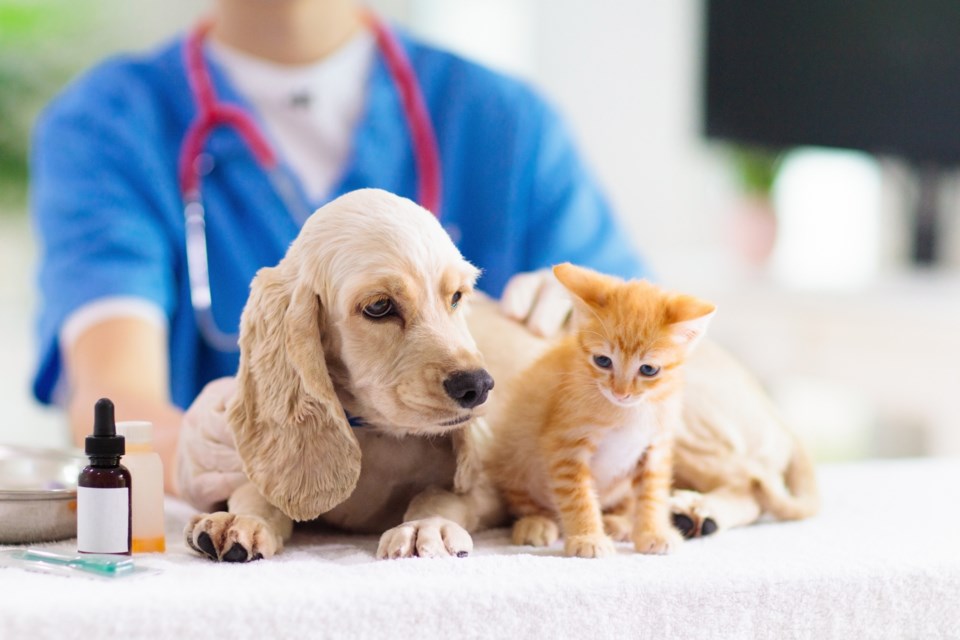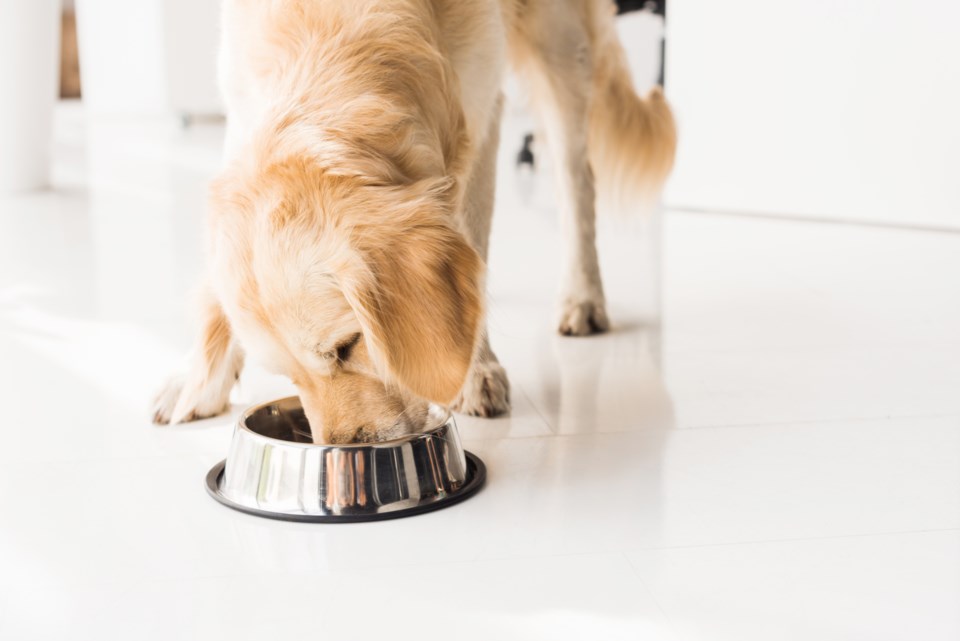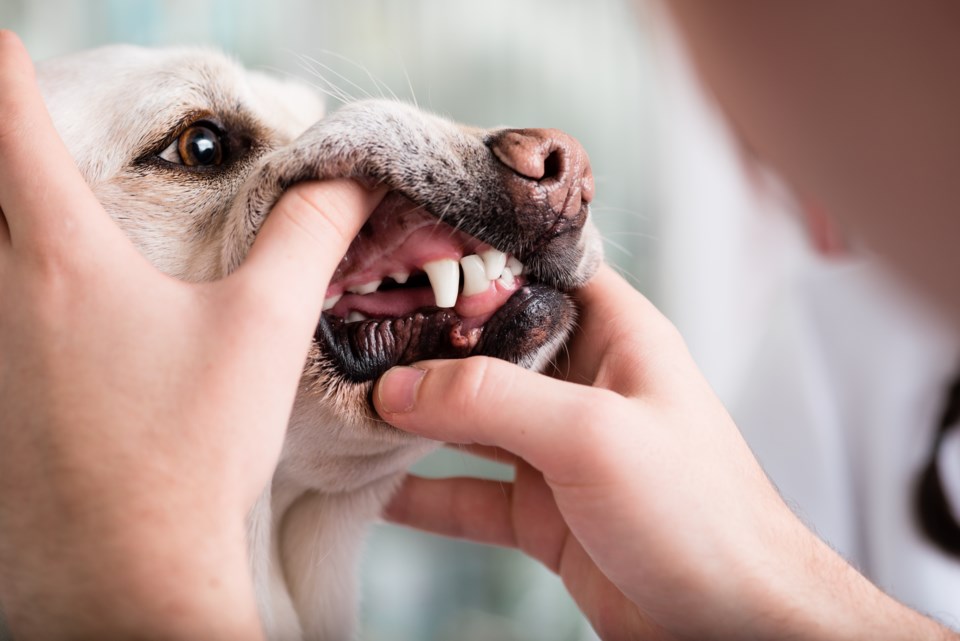The cost of pet ownership can really add up. Especially if your dog or cat encounters health problems that need treatment.
Each pet has its own unique needs and it's up to pet owners to ensure their furry family member stay health and happy for as long as possible.
What's one of the best ways to keep your pet healthy?
A good place to start is preventative care. Preventative care refers to simple steps pet owners take to mitigate health problems. Maintaining a nutritious diet, developing healthy hygiene habits and regular grooming can help prevent health issues for your dog or cat like obesity, which puts pets ar risk for many diseases.
According to the Ontario Veterinary Medical Association, the annual cost of caring for a puppy ranges from $4,589 - $4,666, the annual cost of caring for a dog is approximately $3,724. The cost of caring for cats is approximately $2,542. Costs include healthy pet food options, essentials like collar and leash, toys and bed and other expenses including pet insurance.
Veterinary care represents one of the greatest expense of owning a pet. Annual exams, vaccines and medication can add up to over $700 a year alone. On the flip side, avoiding these visits and vaccines can turn an exam bill into a $4,000 to $5,000 bill for hip replacement or periodontitis. To help pet owners save on pet bills and keep their pets healthy, Native Pet put together a list of key areas to focus on to save money on long-term costs related to pet health.
Establish annual ‘well pet’ visits to the vet

Pet owners shouldn’t leave their four-legged friends out when planning family checkups. Depending on the pet’s needs, a trip to the vet clinic at least once every year is a good starting point. Getting checked yearly can catch silent killers, like tumors, in their tracks before it requires pet surgery and several trips to the hospital. These appointments help veterinarians detect early signs of sickness and provide preventative treatments like vaccines and parasite prevention. Routine checkups can add years to your pet’s life and save pet owners from significant bills in the long run. It’s important to note that, unlike checkups, vaccines may not be annual.
Keep your pet at a healthy weight

According to a 2020 survey, 50-60% of pets were overweight in Canada 22% of Canadian dog owners in the survey received veterinary recommendations for pet weight loss.
A smart way to cut costs and keep your pet healthy is to buy nutritious dog food in bulk. This way, you keep your pet fit by maintaining a balanced diet and setting designated meal times, all while cutting the number of trips to the store. Adding nutritional supplements for pets can also help with dietary management and intestinal health. Keeping your pet at a healthy weight also saves time, money, and worry during future vet appointments because obesity increases the risk factor for many serious medical conditions. Some of these health issues include cancer, diabetes, hypertension, osteoarthritis, and heart disease. With a proper diet, pet owners can help lower the risk of these health problems—and the costs that come with them.
Maintain a regular dental care routine

A dental care routine helps pet owners keep up with their pet’s oral health. As pets sniff and snack daily, a buildup of food, saliva, and bacteria forms plaque on their teeth. If left unattended, plaque hardens to form tartar, which requires professional dental cleaning.
Nipping the buildup of plaque and tartar in the bud prevents dental conditions like periodontitis, tooth infection, cavities, and gingivitis. Owners can prevent these conditions by cleaning their pet’s teeth daily. Dental gel and chews, water additives, and therapeutic diets are also preventative ways to keep teeth healthy.
How much does dog teeth cleaning cost?
Dental care ranges between $450 and $1,000, depending on various factors. If these prices seem overwhelming, prevention is the name of the game.
Groom your pet often

Regular grooming is an important part of a pet’s well-being. Part of grooming includes daily brushing or combing (as suitable for the coat), cleaning the ears and teeth, and clipping or using a nail grinder for dogs. Proper grooming leaves pets with better hygiene and smell. These sessions also allow pet parents to perform hands-on examinations on their pets, meaning they’ll be able to spot potential health issues. Spotting issues like infection or parasites early make the treatment process easier, saving time and money.
Look for pet and dog brushes that are easy to clean and dishwasher safe for effortless clean up.
Invest in parasite prevention efforts

Parasites can cause many health problems in pets, from minor irritation to significant illnesses. Most infections are contracted in the yard, park, or other public areas pets frequently visit. These parasites can also threaten the health of pet owners and others around them.
The first step to preventing parasite infection is good hygiene and regular grooming. These measures go a long way in protecting pets. Some extra measures that help keep pesky parasites away include using flea and tick treatment, topical creams, flea collars, and oral medications. For adult animals, pet owners need to repeat the treatment at least four times each year. For the younger or high-risk animals, it’s advisable to increase the number based on the advice of a veterinarian.
A version of this story originally appeared on Native Pet and was produced and distributed in partnership with Stacker Studio. The article has been re-published pursuant to a CC BY-NC 4.0 License.


